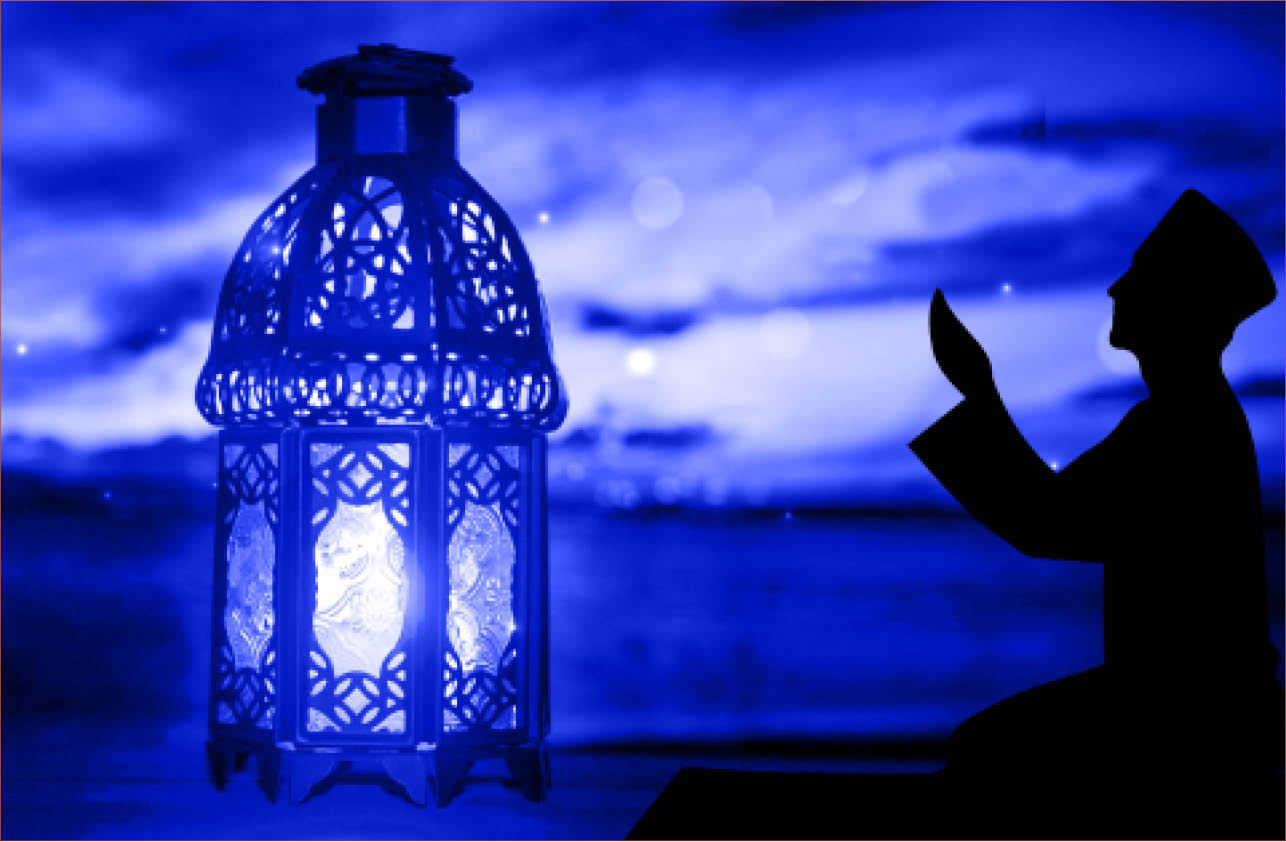Today, Saturday May 8, 2021 is the 26th day in this year’s Ramadan; the night of 27th day of Ramadan tonight is believed by many to be of Laylat ul-Qadr. We must not miss Laylat ul-Qadr and the opportunities that come with it. Let us devote most part of the day to reciting the Qur’an and glorifying Allah just as we should spend the greater part of the night in observing mid-night superogatory prayers called Tahajjud. To be able to do all this effectively, it may be necessary for individuals especially persons with busy schedules to manage their time well by organizing or re-organizing their daily routines. You cannot spend the whole day hustling around and yet expect to use the whole night in worship again. Effective time management would guide us create enough time for engaging in diverse acts of worship especially in these last days of Ramadan.
- Malami: Prominent Nigerians financing terrorism will be prosecuted
NPA debacle: Hadiza Bala-Usman faces panel over N165.3bn ‘unremitted’ funds
Laylat ul-Qadr is the beginning of the end of Ramadan fast. Indeed, some Muslims are already missing this unique month. At this tail end of Ramadan, men of God find themselves divided between the joy that comes with celebrating Eid ul-Fitr and the sadness that set in after Ramadan ceases with its spiritual benefits. Allah (SWT), the Wise, knows best why He made this unique month just once in a circle of twelve months. The worth of Laylat ul-Qadr justifies the passion for it by worshippers.
Eid ul-Fitr formally marks the end of Ramadan fast. Major events of Eid ul-Fitr include payment of Zakat ul-Fitr. Anas bn Malik (RA) reports that the Prophet (SAW) said: “The Ramadan fast of believing servants of Allah (SWT) would hang between the heavens and the earth until he pays the Zakat ul-Fitr. When he gives it out, Allah (SWT) would grant it two wings to fly to the seventh sky where it would remain until the owner comes for it”. This gives testimony to the significance of Zakat ul-fitr to Muslims. Zakat ul-Fitr is a Sunnah that is compulsory on every Muslim, young and old, male and female, free-born as well as slave. The Zakat ul-Fitr of every Muslim is to be given out by the person responsible for his/her sustenance.
A man would give the Zakat ul-Fitr of his wives, children, and every other person under his care. Abdullahi bn Umar (RA) reports that the Prophet (SAW) fixed the Sa’a of dates as the quantity to be given as Zakat ul-Fitr at the end of Ramadan fast. In other words, it is to be given from the staple food item of one’s community. In Nigeria, it could be rice, maize, millet, wheat, beans or similar grains. Malik relates that Abdullahi bn Umar (RA) would always pay the Zakat ul-Fitr in dates, except once, when he paid it in barley.
The quantity to be given out as Zakat ul-Fitr per head is four cubic measures of the food item (in grains) using the prophetic cubic measure (Mudu n-Nabiyy). Four measures of Mudu n-Nabiyy makes one Sa’a. It is Sunnah of the Prophet (SAW) to pay Zakat ul-Fitr before going for the Eid prayer on the day of Eid ul-Fitr. However, there’s no harm if it is paid a day or two before the day of Eid ul-Fitr. It is reported that Abdullahi bn Umar (RA) used to pay the Zakat ul-Fitr two or three days before the day of Fitr (final breaking of Ramadan fast). If a Muslim were unable to pay the Zakat ul-Fitr before leaving for the Eid prayer due to penury, he/she would still pay it when available or affordable. Zakat ul-Fitr has no waiver or substitute. It is obligatory on every Muslim.
Apart from paying the Zakat ul-Fitr before going for Eid prayers, every Muslim is enjoined to break his fast in the morning before setting out for the Eid praying ground. Refusing to eat or drink after daybreak on the Eid ul-Fitr day does not make one more pious than others. Such is rather a contradiction of the provisions of Shari’ah and amounts to extending Ramadan fast beyond and against Allah’s will.
Observing the Eid prayer in congregation usually in the morning and in the outskirts of the city or town is another major prophetic event on the Eid ul-Fitr day. It is a prophetic practice to stay behind and listen to the sermon that would be delivered by the Imam immediately after the Eid prayer had been observed. Much would be missed if this important aspect of the Eid prayer is ignored as the sermon is expected to remind worshippers of the emptiness of this phenomenal world. It is recommended that worshippers who observed the Eid prayer should change their route on their way home from the Eid praying ground.
The end of Ramadan fast should not be an end to the righteous life we lived in the last one month. Let us resolve to continue with all the virtuous deeds we tried to keep during Ramadan. The occasion of Eid ul-Fitr is a period for believers to reflect and make meaningful resolutions including a resolve not to go back to our old sinful life of telling lies, backbiting, rumour mongering, betrayal, dishonesty and immodesty. Resuming this kind of unholy life after Ramadan only makes us hypocrites.
In our closing supplications this Ramadan, let us remember to pray for Nigeria; asking Allah (SWT) to tackle all the challenges confronting us as a nation. After asking for Al-Jannah as our final abode in the hereafter, let us pray to Allah to guide and grant our leaders the wisdom and foresight required for salvaging Nigeria from its present predicaments. O Allah! accept our acts of devoutions; forgive our sins and transgressions; overlook our excesses including those perpetrated against humanity; replace the current spate of insecurity, mistrust and bigotry in the country with peace, cohesion and tolerance, ameen. Eidukum Mubarak! Kullu Aamin Wa Antum Bi-Khayrin!!

 Join Daily Trust WhatsApp Community For Quick Access To News and Happenings Around You.
Join Daily Trust WhatsApp Community For Quick Access To News and Happenings Around You.


